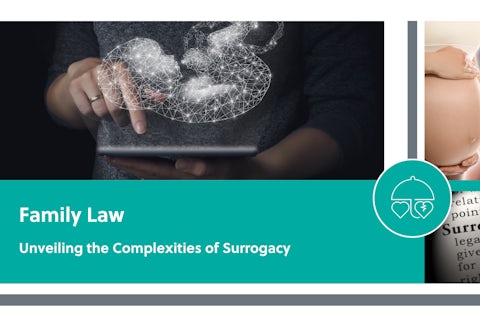Earlier this week, my colleague Sally Nash considered the proposals for reforming compliance with contact orders. Today, in part 4 of our review of the Scottish Child Law Consultation, I will discuss the rights which grandparents and siblings have to seek contact with a child, and the proposed reforms.
Child contact with Grandparents
It is not at all uncommon for children’s grandparents to be very involved in their care arrangements. It is also generally recognised that a good relationships with their grandparent(s) can be very important for children, especially in times of a family crisis.
There is a presumption that children should have contact with their parents (which is of course rebuttable as this is not always the case) however there is no presumption that children should have contact with their Grandparents. The proposed reform centres around this.
Imagine a scenario where the relationship between two parents breaks down, and a court decides that it is not in the best interests of a child for one of the parents to have contact with that child. Where does this leave the parents of the parent denied contact if the parent who has residence of the child will not facilitate contact with them?
Grandparents can make an application to the court for contact with their grandchild. Section 11 of the Children (Scotland) Act 1995 allows any person who does not have parental responsibilities or rights who claims an interest in respect of the child to apply to the court to seek a contact order.
This is not the first time the government have considered introducing a presumption for contact in favour of grandparents. In 2006, there was a similar review of the legislation. It was decided then not to introduce a presumption and instead the executive at the time proposed that a heavier emphasis should be placed upon promoting the role of the wider family where voluntary arrangements cannot be reached. The Charter for Grandchildren introduced in 2006 has recently been republished, and in highlighting the importance of the wider family, there is a suggestion that grandchildren should expect amongst other things to know and maintain contact with their family except in very exceptional circumstances.
The decision then not to introduce the presumption was not because the role of grandparents was deemed to not be important enough, quite the opposite. However, as we have mentioned before, in deciding whether to make an order the court has an obligation to take a child’s view into account, and the concern was that an automatic right for grandparents would ignore the views of the children. Indeed, a presumption could, in some circumstances, give grandparents a greater legal right than fathers.
So we must consider, is what we have already sufficient? It is a difficult question to answer. In our office, there has been much “humming and hawing”. No case is the same, and no family is the same. In certain circumstances I can see where a presumption would undoubtedly be helpful, and in others I would have concerns that a presumption that contact with grandparents should take palace could lead to contact with an unsuitable parent amongst other things.
In cases where a presumption might help loving and devoted grandparents to maintain a relationship with their grandchildren, I would hope that were an application made by such grandparents the evidence would be sufficient to show that an order for contact would be in the best interests of the child, irrespective of whether a presumption existed.
In cases where I might have worried about the possible outcome of such a presumption, then at the very least such a presumption would surely have to be rebuttable.
Either way, if contact is granted to a grandparent where their child has been denied contact be a court, then there would have to be measures in place to ensure that grandparents in those circumstances do not breach the trust of the court and use their contact with the child to instigate unauthorised contact with the child’s parent.
Overall, I tend to lean towards the conclusion that no presumption should be introduced, though I would once again take the opportunity to reiterate that the legislation does allow for grandparents to seek orders for contact already where that is in the best interests of the child.
Child Contact with Siblings
It is well recognised that children’s relationships with their siblings can be as important as contact with their parents, and accordingly that the need for contact to take place with siblings living outside the family home is important.
Firstly, it is necessary to touch on who counts as a sibling? This can be summarised as any person who the child regards as their sibling and with whom they have an established family life.
Currently, any person who fits into this category can seek an order for contact from the court as the legislation provides that the court may make an order regulating the arrangements for maintaining personal relations and direct contact between a child under 16 and a person with whom the child is not, or will not be, living with.
Usually, when an order for contact is granted Parental Rights and Responsibilities are also granted. The legislation provides that a person must be at least sixteen (or a parent of the child) to receive PRRs.
Does this mean that children under 16 cannot be granted contact with a sibling who is also under 16? The answer to this is no. The court may award contact to any individual without awarding PRRs. The consultation asks us to consider whether the legislation should be clarified to confirm that a sibling can apply for contact without being granted PRRs. We consider that it should, as it may lead to an uplift in the number of people under the age of 16 who are granted contact with their siblings.
The information and opinions contained in this blog are for information only. They are not intended to constitute advice and should not be relied upon or considered as a replacement for advice. Before acting on any of the information contained in this blog, please seek specific advice from Gilson Gray.








